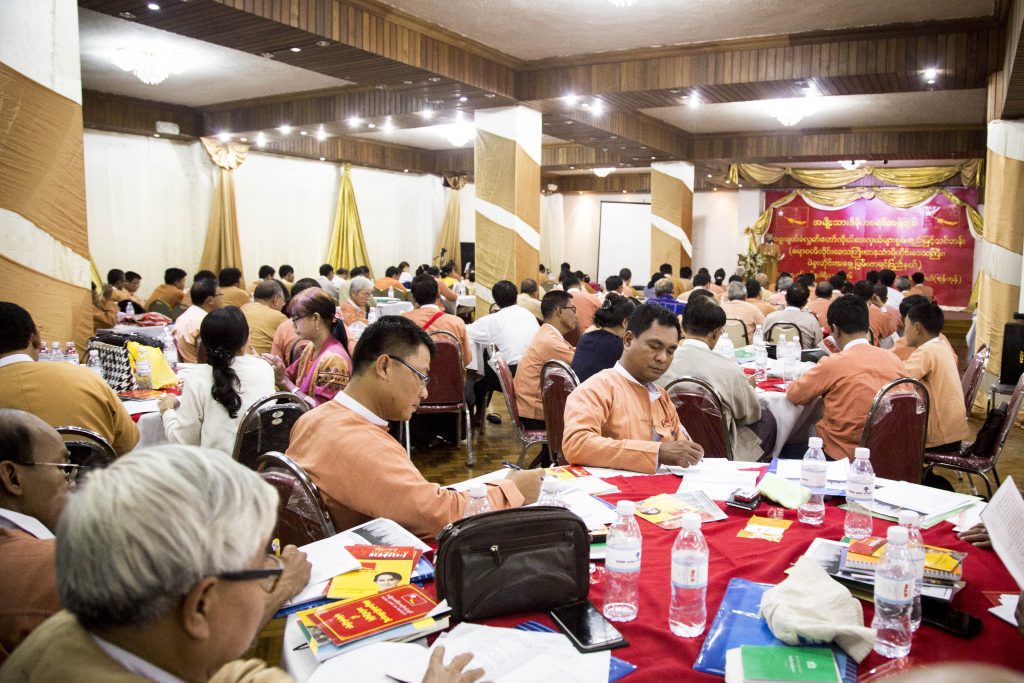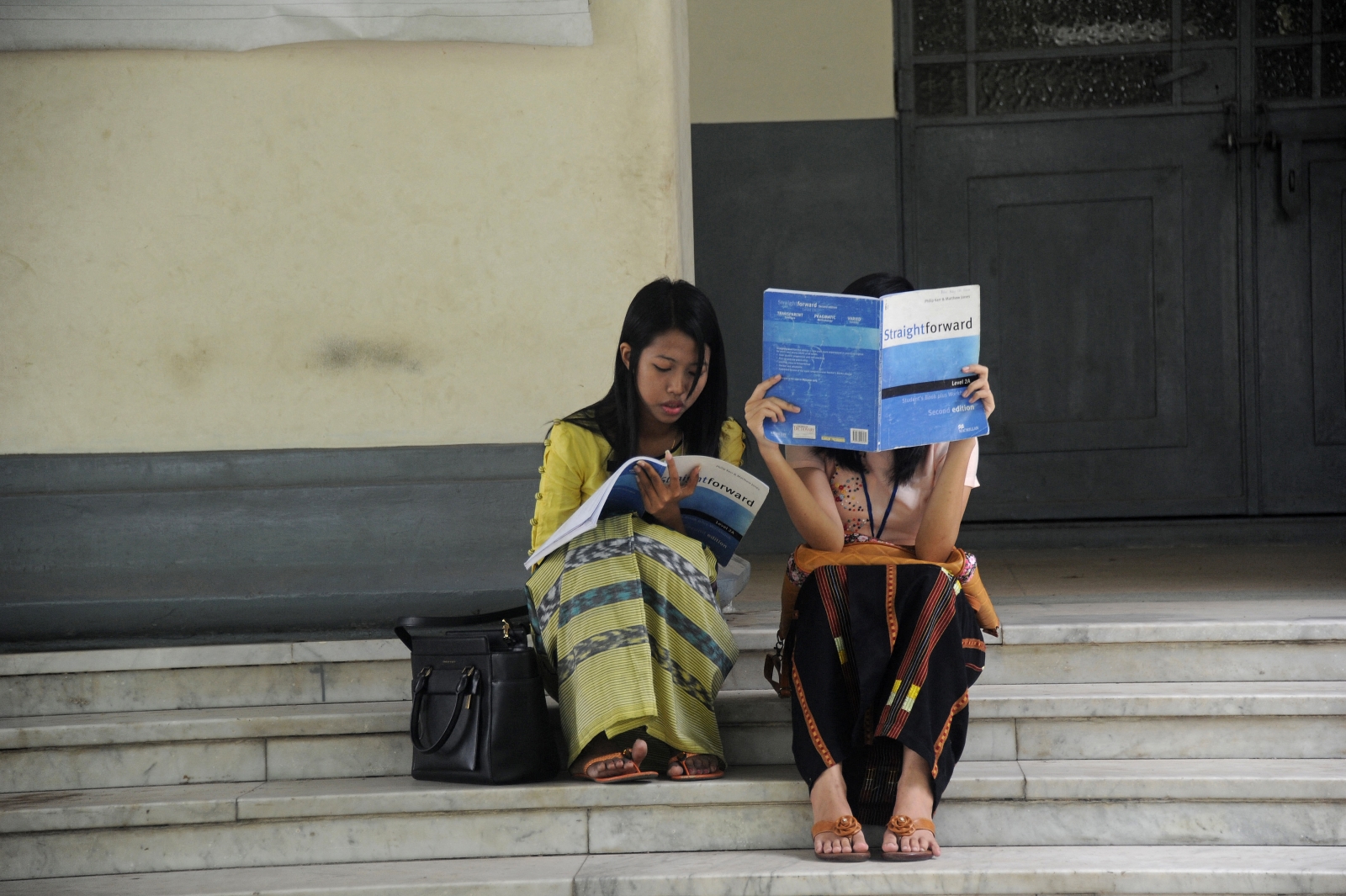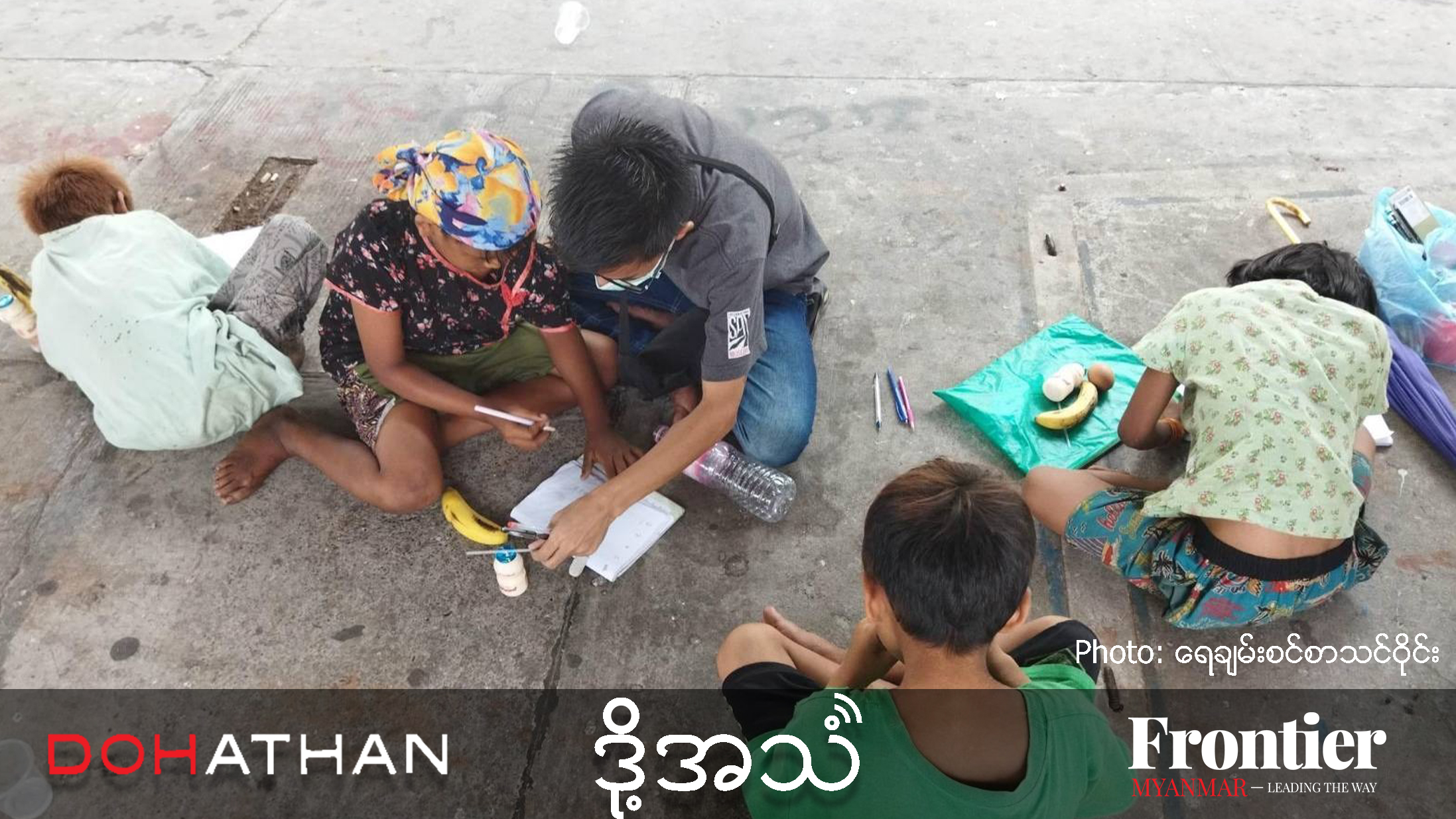A National League for Democracy program to build capacity among its MPs-elect will be complemented by United Nations training for all members of the new parliament after it convenes next month.
The National League for Democracy has taken advantage of the lengthy transition period before the next parliament convenes on February 1 to send its MPs-elect back to school to prepare them for their new roles.
“The very first thing we have to do is make sure they are ready for parliament,” U Myo Yan Naung Thein, the party official responsible for training, told Frontier. “As soon as parliament begins we cannot expect it to work entirely smoothly. There will be some shortcomings, of course, so we will be evaluating things very closely and providing the training they need.”
The party’s massive election victory in November resulted in swathes of experienced Union Solidarity and Development Party MPs being replaced by their NLD rivals. The new parliament will therefore lack much of an institutional memory, as many of the lessons learned during the previous five years will have to be re-learnt. It also remains to be seen whether the new cohort of MPs has the knowledge and experience necessary to effectively meet the high expectations for reform.
The NLD has responded to these concerns by arranging the mandatory training. To a cynic, the training is alarmingly simplistic for elected officials. It lasts just three days and comprises 14 modules. Topics include the basics about the constitution and parliamentary procedures. “These are things they should already know,” U Myo Yan Naung Thein acknowledged.
The purpose of the training is to ensure that all MPs-elect have a base level of knowledge. Once the basic training is completed, the party will provide more specialised guidance. Those who have been appointed to ministerial positions, for example, will receive training specific to their portfolio.
A general criticism of Myanmar politics is that many candidates fail to understand the concerns of their constituencies and prefer to focus on national issues and refuse to deviate from standard positions. If elected, such candidates are little more than stooges for the party’s executive.
The training program has attracted considerable criticism over its funding. The main sponsor is the Asia Green Development Bank, owned by the tycoon U Tay Za, who has been blacklisted by the United States over his ties with the former military government. Some critics have suggested that the perceived closeness between the NLD and U Tay Za is part of a strategy by the tycoon to be removed from the US blacklist.
U Myo Yan Naung Thein defended the NLD’s decision to accept funding from U Tay Za. “If we are to conduct the training then we need assistance; we cannot have assistance from foreign countries because it is forbidden by law,” he said, referring to Section 407(c) of the constitution. It forbids any political party from benefitting directly or indirectly from financial or other assistance provided by any foreign government, entity or person. A breach of the clause can result in a party being de-registered.
“We are working together for the nation,” U Myo Yan Naung Thein said. “They might have been cronies in the past but now we have to work together.”
Although it is illegal for international organisations to directly support a political party, they can provide independent training. An example of such a provider is the Richardson Center for Global Engagement, a non-profit organisation in the United States founded by former politician Bill Richardson.
Before the election, the centre provided communications training for candidates from all political parties. “One of greatest challenges was that a lot of the candidates, from across all parties, didn’t necessarily know what their own personal politics were,” Mindy Walker, a consultant at the centre, told Frontier.
A general criticism of Myanmar politics is that many candidates fail to understand the concerns of their constituencies and prefer to focus on national issues and refuse to deviate from standard positions. If elected, such candidates are little more than stooges for the party’s executive.
“When asked what they thought were the most important issues, they would usually say the constitution or minority rights,” said Ms Walker. “What they found out when they went door-to-door was that a lot of people cared most about issues like a lack of jobs, the local economy or infrastructure, such as the road systems,” she said. “It was a big shock for a lot of them when they realised that the public weren’t responding in the way they thought they would.”
The criticism about MPs lacking local knowledge has persisted since the 2010 election. The Union Solidarity and Development Party government set an ambitious legislative reform target for its five-year term and the USDP-dominated parliament is said to have neglected its representative function in favour of a strong legislative role.
The United Nations Development Programme will be working with parliament to improve the capacity of MPs which will be provided at its new learning centre in Nay Pyi Taw. The early stages of the curriculum will focus on teaching MPs the basic elements of parliament, as well as skills such as English and using computers. After the initial work skills training is completed the project will provide more complex and specialised training focused on parliamentary procedures, such as drafting effective parliamentary questions.
“I think one of the biggest challenges is about ensuring that parliament has the services and support it needs,” Edin Elgsaether, a member of the UNDP’s democratic governance unit, told Frontier.
The UNDP is collaborating with other international organisations, such as the United Kingdom’s House of Commons, to establish research services that will provide MPs with briefing papers on upcoming issues. The UNDP hopes this will help MPs to be better informed and improve the quality of debates and legislation.
The UNDP is also hoping to work with parliament to reform and improve its procedures. Complaints received by the various parliamentary committees are still considered individually. The UNDP aims to work with the committees and encourage them to consider wider policy changes as a means of resolving the wider issue, rather than considering complaints case by case.
Perhaps the most important lesson for incoming MPs will be learning how to pace the reform process. The outgoing parliament passed or amended more than 150 pieces of legislation. The bureaucracy understandably struggled with the deluge of new laws and only 30 percent of them were implemented.
“You can’t run a reform process too fast if you don’t have the capacity to implement it,” said Mr Elgsaether. “Resolving this issue requires very careful co-ordination [between the ministries and parliament] and for the government to identify their priorities within what is actually feasible.”







